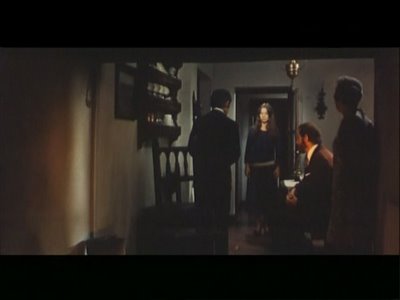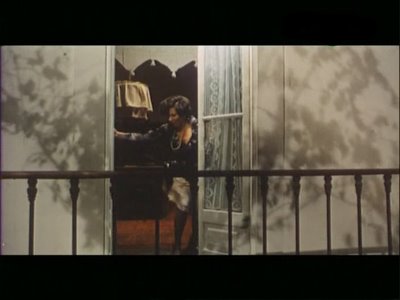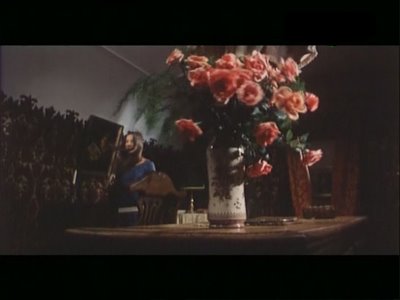If memory serves, I wrote this for the Chicago International Film Festival’s catalogue in 2003 after I selected it as a Critic’s Choice to be shown at that festival. — J.R.
My first encounter with the stupefying talent and singular career of Portuguese master Manoel de Oliveira — who turns 95 this December, and has been making at least one remarkable feature a year since 1990 —- was in 1981, when I saw his 1978 masterpiece Doomed Love, one of the greatest literary adaptations in the history of cinema. And when I had a chance to explore his work further, it was Carl Dreyer, the greatest of all narrative filmmakers, whom de Oliveira seemed to resemble the most: an eccentric, obsessive modernist who managed to make about one feature per decade during the sound era after starting out in silent cinema. At least that’s how it looked in the early 80s, when Doomed Love was only his fifth feature, and the film that immediately preceded it, Benilde (1975), was especially evocative of Dreyer in its spiritual ambiguity and its stylistic intensity, including its unabashed theatricality. It was adapted from a play of the mid-40s by José Régio — a writer who had enormous personal importance for de Oliveira, having written passionately about his first film, Douro, faina fluvial (1931), and then gone on to become a treasured friend and role model.
A film that caused a scandal when it was released in Portugal, Benilde focuses on a young upper-class virgin who becomes mysteriously pregnant, having been, by her own testimony, impregnated by an angel of God. The film neither contradicts nor confirms her claim, and the fascinating use of offscreen sound makes the ambiguity even more vibrant. It’s a film I cherish for its sensuality and its erotic mystery, which, as Dave Kehr has observed, is no doubt informed by and given additional meaning by the film’s historical background — “the early years of the fascist Salazar regime”.



